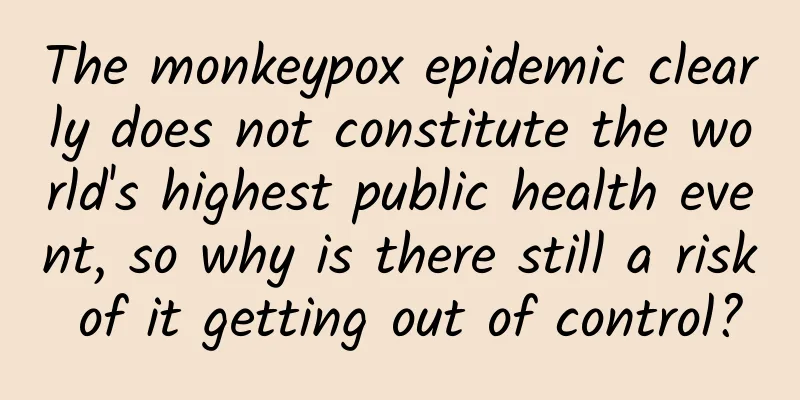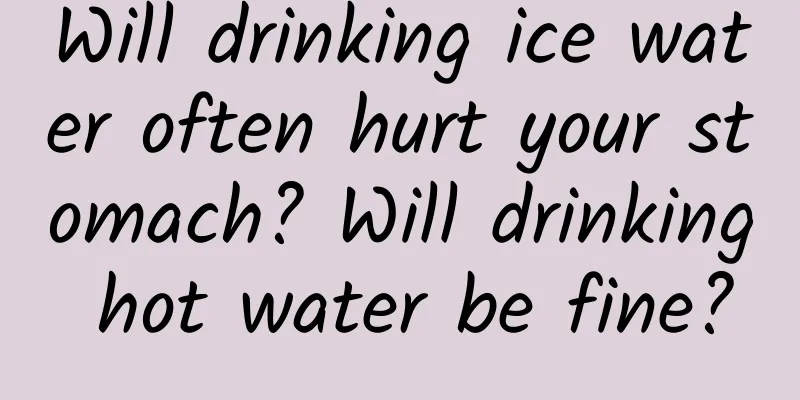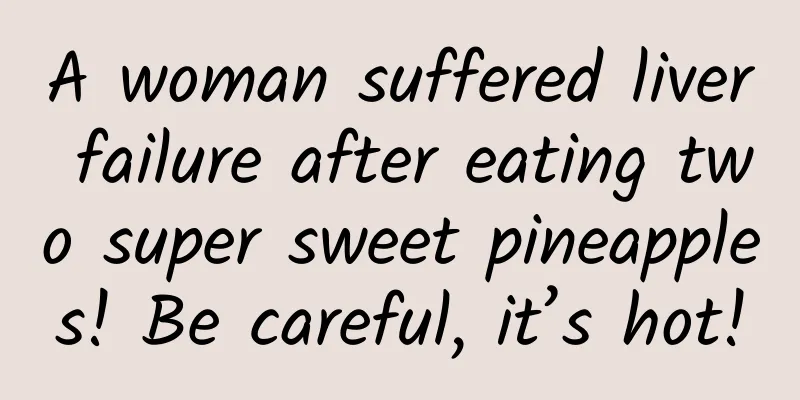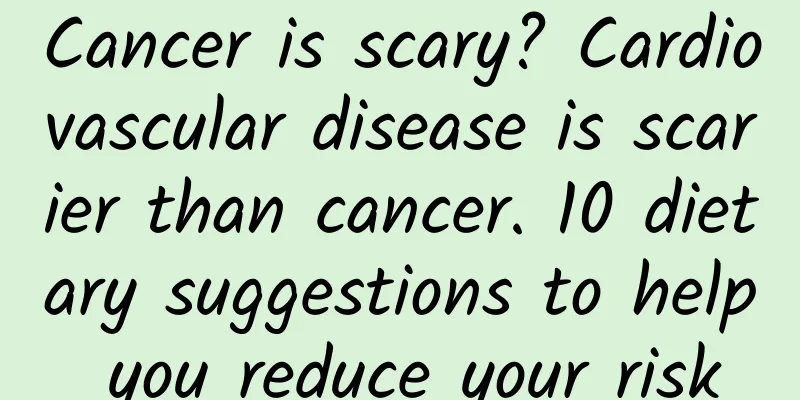Do you take antibiotics when you have inflammation? Is it really a panacea?
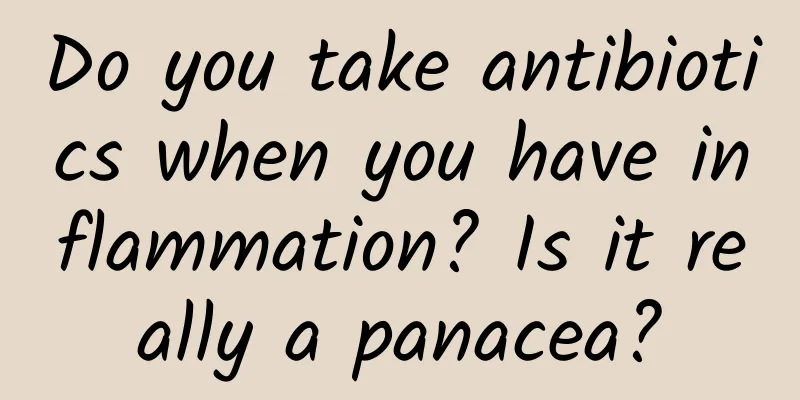
|
When you have a cold or fever, some people’s first reaction may be to use antibiotics. When you have a toothache or diarrhea, some people may also think of antibiotics first... What exactly are these “antibacterial drugs” that seem to be omnipotent? When should antibiotics be used? 1. Antibacterial drugs ≠ anti-inflammatory drugs Antibacterial drugs are only effective against bacterial infections. Most "inflammations" are not caused by bacterial infections. For example, rheumatoid arthritis requires anti-inflammatory treatment with non-steroidal anti-inflammatory drugs such as aspirin; allergic rhinitis should be treated with anti-allergic drugs, hormones and other drugs. 2. Antibacterial drugs ≠ cold medicine Colds are caused by a variety of viral infections, and antibiotics are ineffective against cold viruses. During a cold, some symptomatic treatment drugs can be used. For example, if you have headaches and body muscle aches, you can use antipyretic analgesics such as acetaminophen and ibuprofen. Only when you have frequent coughs after a cold, accompanied by yellow, thick sputum, fever, sore throat, etc., and secondary bacterial infections occur, will doctors choose appropriate antibiotics for treatment according to the condition. 3. Do I need to take antibiotics for cough and diarrhea? There are many reasons for coughing, such as viral infection, asthma, cold air stimulation, etc. Bacterial infection is only one of the reasons. In addition to bacterial infection, diarrhea can also be induced by cold, viral infection, food allergy, etc. It is reasonable to use antibiotics to treat cough and diarrhea only when they are caused by bacterial infection. 4. Do I need to use antibiotics after tooth extraction? Whether antibiotics are needed after tooth extraction depends on the bad tooth and the patient's general condition. If the tooth extraction process is simple and the patient is in good physical condition, no antibiotics are needed; if the tooth is inflamed, the tooth extraction causes great trauma, or the patient has poor resistance, antibiotics can be used under the guidance of a doctor. How long do antibiotics need to be used? "All medicines are poisonous", it is wrong to stop taking antibiotics when the symptoms of infection improve slightly. Little do we know that the "symptoms" we call are actually the manifestations of the disease. If the medicine is stopped when the symptoms of infection are alleviated, the bacteria in the infected area will not be completely eliminated, and it is very likely to become a chronic infection. It is like a pile of ashes, there is no spark on the surface, but the inside has not been completely burned. Once there is wind, it may become a "raging fire". Some people also think that the longer you take antibiotics, the better, because they can kill bacteria more thoroughly. This idea is also wrong. Each antibiotic has a different antibacterial spectrum. For infectious diseases, the site of infection, the amount of infected bacteria, and the type are all significantly different. You must follow the doctor's instructions and do not extend the use of antibiotics at will. There are abundant microorganisms in the human body, and the abuse of antibiotics may lead to dysbacteriosis, antibiotic-related diarrhea, dysbacteriosis, pulmonary fungal infection, severe drug-resistant bacterial infection and other adverse consequences. Antimicrobial drugs are a double-edged sword Proper use of antibiotics can quickly kill pathogenic bacteria and allow our bodies to recover quickly. On the contrary, improper use of antibiotics will threaten our health and disrupt the body's normal flora. While killing bacteria, antibiotics can also cause damage to the human body, affect liver and kidney function, and cause gastrointestinal reactions. 1. Follow your doctor’s advice Listen to your doctor, take medicine according to the complete prescription, use antibiotics in sufficient doses and for sufficient courses, do not buy antibiotics at will, and do not take antibiotics at will. 2. Love hygiene Wash your hands frequently to maintain hygiene and avoid bacterial infection. 3. Exercise more Do more exercise to strengthen your body and enhance your resistance. |
<<: Your brain works harder than you think to tell you the order of time
>>: The more "mud" you rub off during the shower, the cleaner you will be. Is this true?
Recommend
Effects and efficacy of rat shell grass
The effects of Artemisia selengensis: relieve cou...
What is White Cardamom
White cardamom is a kind of plant. It is not only...
A man died after extracting 23 teeth at once! Can you only extract one tooth at a time?
When it comes to tooth extraction, everyone is fa...
Floods, destroyed fields and injured people! "Wanted Orders" have been issued in many places across the country...
recently Wild boars are rampant in many places in...
The efficacy and function of Zuogui Pills
When it comes to Liuwei Dihuang Pills, everyone i...
Coenzyme Q10
Medicines are common in life. There are many type...
The role and efficacy of Atractylodes
Medicine is a common choice for treating diseases...
The efficacy and function of ground pulp
Ground porridge is a medicinal material that can ...
Mixed infection has occurred! Doctors remind that the popular "three-piece set" for Mycoplasma pneumoniae infection should be used with caution!
Edit: Thanks Autumn and winter are the peak seaso...
The efficacy and function of Niaobuqi
Do you know what Niaobuqi is? It is a kind of tra...
The efficacy and function of scoop
Traditional Chinese medicine is very effective in...
Big news! Jinping Deep Earth Core Astrophysics Experiment releases its first experimental results, exploring the deep mysteries of the universe
"If you go to Jinping Deep Underground Labor...
What are the medicinal values of castor seeds?
Castor seeds are a kind of herb produced in the s...
The world's stinkiest flower has borne fruit! Netizens: I want to eat it...
recent The giant arum in the greenhouse of the Na...

